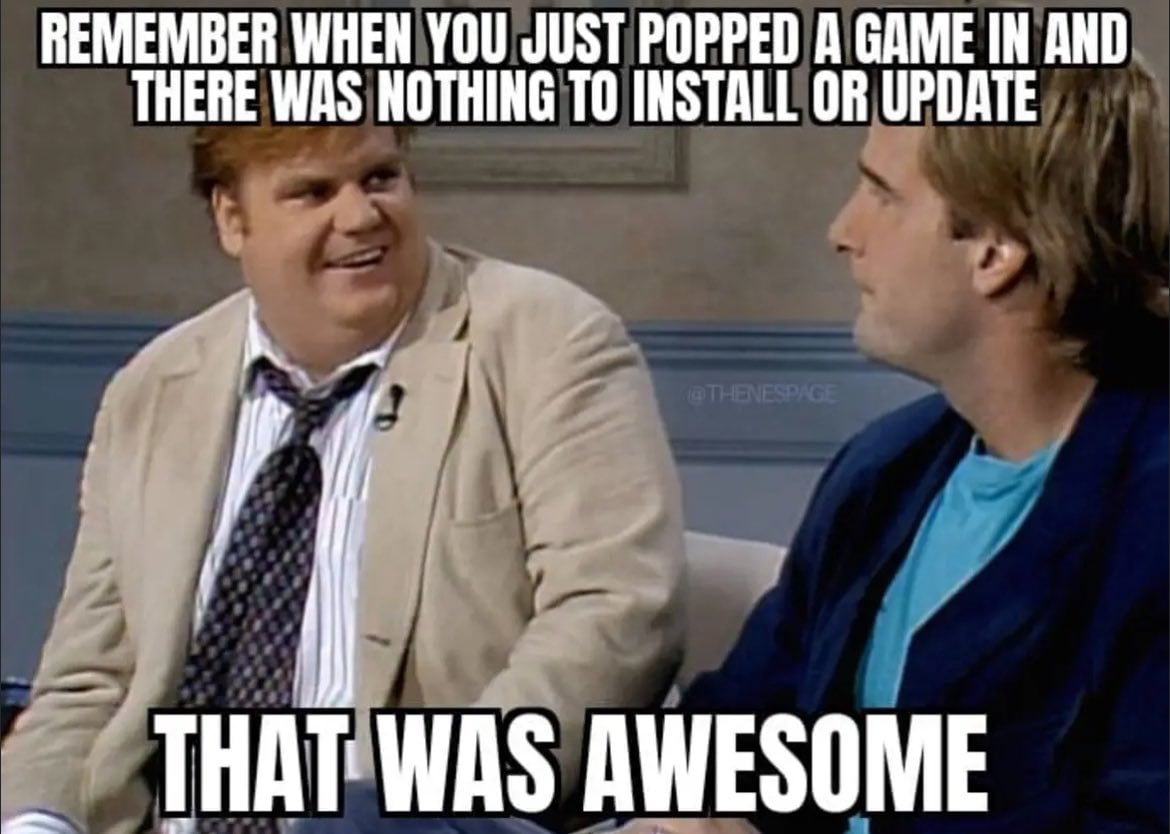this post was submitted on 10 Mar 2024
817 points (96.8% liked)
Memes
8506 readers
1073 users here now
Post memes here.
A meme is an idea, behavior, or style that spreads by means of imitation from person to person within a culture and often carries symbolic meaning representing a particular phenomenon or theme.
An Internet meme or meme, is a cultural item that is spread via the Internet, often through social media platforms. The name is by the concept of memes proposed by Richard Dawkins in 1972. Internet memes can take various forms, such as images, videos, GIFs, and various other viral sensations.
- Wait at least 2 months before reposting
- No explicitly political content (about political figures, political events, elections and so on), [email protected] can be better place for that
- Use NSFW marking accordingly
Laittakaa meemejä tänne.
- Odota ainakin 2 kuukautta ennen meemin postaamista uudelleen
- Ei selkeän poliittista sisältöä (poliitikoista, poliittisista tapahtumista, vaaleista jne) parempi paikka esim. [email protected]
- Merkitse K18-sisältö tarpeen mukaan
founded 2 years ago
MODERATORS
you are viewing a single comment's thread
view the rest of the comments
view the rest of the comments


Maybe the blue ray box should have an entire SSD in them or some kind of NextGen Compact flash as long as it's a standard format and not a proprietary format like a switch game. You can buy blank CDs, DVDs, SD cards and there are standards in place to make them readable by entire fleets of devices.
It's harder for games but I'm coming at this from a games preservation angle.
Games keep getting bigger and require installation to drive to effectively load assets quickly. I really envy the ability to not have to perform an installation to the device. If your game was simply its own storage device again then you could have that plug and play like experience back and also have that ~4GBps read that even the cheapest NVME drives can offer.
I have DVDs, but I also have MKV files, and I have the ability to go between these formats. I suggested something like flatpak because a universal physical media image format for games would be just one more way to easily preserve content offline indefinitely and neatly keep it pretty platform agnostic.
That was my train of thought. I know the likelihood of this being done by a real company is slim to none because of DMCA and over engineering another format is pointless if they can force everything to be download only IRL but I would like to push back and I can't easily archive all this stuff forever on an ever growing 48TB Nas on my home. I would like offline ownership and convenience please.
If it's going to be too expensive for a company to put Alan Wake Two onto physical media then I'd like a way to do it myself so it continues to work when epic decides they want to pull a Warner Bros and rip it off the internet forever and claim it was a loss to get tax breaks. It would also be cool if it didn't have to install and it just started.
I understand the difficulty involved with that but we're halfway there with software running containerized on Linux.
A man can dream.
...
How would what you're suggesting be any improvement from that NAS you have?
You cite games preservation, but you're essentially suggesting we do what some YouTubers do, storing all their footage on a bunch of individual usb drives.
Installation is just moving files.
Having a bunch of small drives instead of a large performant and redundant storage volume is not a good way to avoid having to move files onto the system where you want to run something.
You want the fast performance, but the faster the drives get, the less reason there is to move the physical drive instead of just the files.
Optical media makes sense when your internet is so slow, it's faster to read a disk. That isn't the case for some anymore. My connection could download/install a cracked copy of Alan Wake 2 in less than 20 minutes. Why would I prefer to go out and buy a tiny 86gb SSD to accomplish the same?
You want games to come on hardware so fast you don't need to install them, but that same hardware would allow installing to be so fast it wouldn't bother anyone anymore. And by then why would we store everything on individual loose drives, instead of redundant live storage?
If you need to get data from A to B, but there isn't a fiber connection between them, that's an argument for either disposable optical media, or taking a loose drive to A, loading it up with the data, taking it to B, then dumping the data. What it's not, is an argument for storing everything on those loose drives. That's the worst of bad practice.